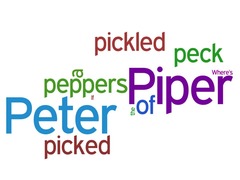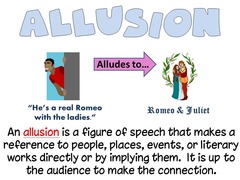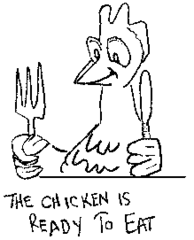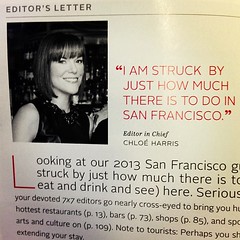Grade 10 Literary Terms
0.0(0)
Card Sorting
1/45
Earn XP
Description and Tags
Study Analytics
Name | Mastery | Learn | Test | Matching | Spaced |
|---|
No study sessions yet.
46 Terms
1
New cards
Alliteration
Repetition of initial consonant sounds

2
New cards
Allegory
a story, poem, or picture that can be interpreted to reveal a hidden meaning, typically a moral or political one. (character represents something else)
3
New cards
Allusion
Indirect reference to an object that is not related to the context of the situation

4
New cards
Ambiguity
A word or phrase that can mean more than one thing.

5
New cards
Analogue
similar or comparable in certain respects "gills of a fish are like lungs of a human"
6
New cards
Analogy
A comparison between two similar things, typically for the purpose of explaining or clarifying. "Life is like a box of chocolates"
7
New cards
Anecdote
short account of an event
8
New cards
Aphorism
A brief, cleverly worded statement that makes a wise observation or reveals a general truth.

9
New cards
Apostrophe
addressing an absent or imaginary person
10
New cards
Assonance
Repetition of a vowel sound within two or more words in close proximity "Go slow over the road"
11
New cards
Cacophony/Euphony
Cacophony: harsh unpleasant words
Euphony: harmonious words
Euphony: harmonious words
12
New cards
Caesura
a strong pause within a line of verse
13
New cards
Connotation
an idea or feeling that a word invokes in addition to its literal or primary meaning.
14
New cards
Consonnance
the repetition of consonant sounds in proximity to eachother
15
New cards
Denotation
the literal meaning of a word
16
New cards
Imagery
Description that appeals to the senses and is visually desciptive
17
New cards
Irony
A contrast between expectation and reality "when you walk in an empty place and say its so crowded"
18
New cards
Paradox
a statement that seems contradictory but may be true "chicken or the egg"
19
New cards
Pathetic Fallacy
The attribution of human emotions or characteristics to inanimate objects or to nature; for example angry cloud
20
New cards
Point of View/Narration
who the story is told from, 1st 2nd or 2rd person
21
New cards
Pun
a joke exploiting the different possible meanings of a word "a boiled egg is hard to beat"
22
New cards
Rhetorical Question
A question asked merely for rhetorical effect and not requiring an answer
23
New cards
Satire
the use of humor, irony, exaggeration, or ridicule to expose and criticize people's stupidity
24
New cards
Soliliquoy
a speech that a character makes while alone on stage.
25
New cards
Stanza
A group of lines in a poem
26
New cards
Symbol
A thing that represents or stands for something else
27
New cards
Synecdoche
a part is made to represent the whole or vice versa for ex, "new wheels = new car"
28
New cards
Theme
Central idea of a work of literature
29
New cards
Tone
An attitude towards something by the author
30
New cards
Understatement
the presentation of something as being smaller, worse, or less important than it actually is.
31
New cards
Diction
a writer's choice of words
32
New cards
Colloquilism
informal speech
33
New cards
Jargon
distinct/special words most people don't know
34
New cards
Epigraph
a short quotation or saying at the beginning of a book or chapter, intended to suggest its theme

35
New cards
Euphemism
An indirect, less offensive way of saying something that is considered unpleasant
36
New cards
Foil
A character who acts as a contrast to another character
37
New cards
Foreshadowing
the use of hints and clues to suggest what will happen later in a plot
38
New cards
Hyperbole
exaggeration
39
New cards
Metaphor
A comparison without using like or as
40
New cards
Metonymy
substituting the name of one object for another object closely associated with it ( eg, the crown is the queen or king)
41
New cards
Mood
How the reader feels about the text while reading.
42
New cards
Simile
A comparison of two unlike things using like or as
43
New cards
Personification
the giving of human qualities to an animal, object, or idea
44
New cards
Onomatopoeia
the use of words that imitate sounds "cat meowed"
45
New cards
Oxymoron
A figure of speech that combines opposite or contradictory terms "awfully good"
46
New cards
Inference
A conclusion reached on the basis of evidence and reasoning